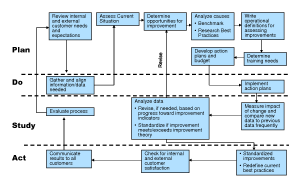 There’s been a recent cluster of articles on the productivity benefits realized from capping working days and working hours. Earlier this week Cal Newport penned an op-ed in The NY Times picking up on this theme.
There’s been a recent cluster of articles on the productivity benefits realized from capping working days and working hours. Earlier this week Cal Newport penned an op-ed in The NY Times picking up on this theme.
Newport has been arguing that current approaches to complex knowledge work are poorly conceived. He argues for the importance of learning how to do “deep work†and advocates for the value of digital minimalism. Here he turns to a well-worn comparison. Manufacturing work did not realize meaningful productivity gains until Henry Ford made the transition from craft approaches to a carefully designed and engineered assembly line.
All too often the next move in this argument is to immediately conclude “craft bad/engineered process good.†I doubt that Newport would support that conclusion but this short circuit occurs often enough that I want to slow down for a moment and focus on it.
Concluding “craft bad/engineered process good†is the wrong answer to the wrong question. The lesson to be drawn from the Henry Ford is not that Ford found the right answer, it is that he found a better question.
That better question was “How do we design a process that will produce consistent, quality results?†His answer, in a stable and predictable environment, was an engineered process operating within tight tolerances to produce standard products of uniform quality.
We do not operate in “a stable and predictable environment.†Nor are we expected “to produce standard products of uniform quality.†How do we begin to answer that design question given those constraints?
We don’t do it by copying Ford’s answer.
I continue to believe that developing new answers starts by thinking in terms of craft. Recognizing that the goal is no longer “standard products of uniform quality†is a first step. I’ve talked about it as balancing uniqueness and uniformity.
The harder question is how to think about process without falling into the trap of engineered rigidity. I think getting answers to that questions needs to start in the field, watching how effective knowledge workers practice and think about their craft. I would like to get something more concrete than the classic consultant’s response to any request for advice of “well, it depends…â€
Just had a similar discussion with a Stockholm CEO who stared a firm to address issues such as creativity and uniformity. I believe this thinking is ahead of the curve as people are still looking for the magic formula perfect decision trees, data points and uniformity to manage people and process.